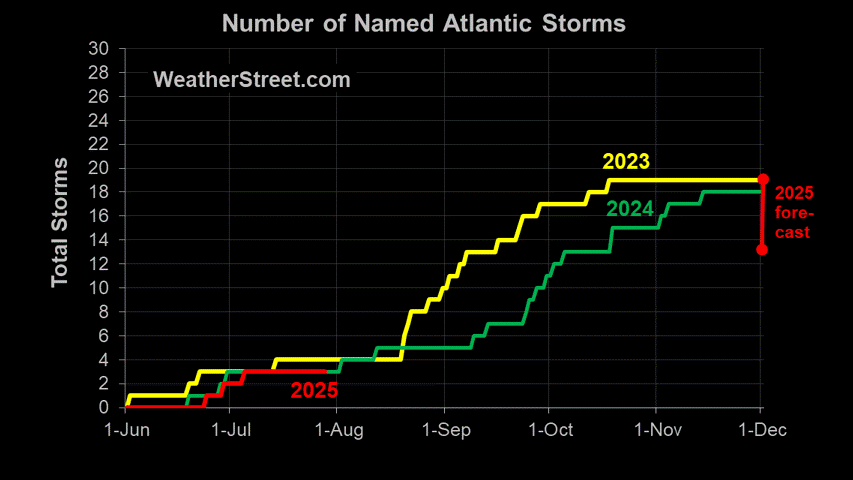Effect of climate change on hurricanes
More discussion on the potential for global warming to affect the number and intensity of hurricanes .
The Atlantic is unique in that the temperature regularly alternates between the 27C threshold associated with hurricane formation while the other oceans around the globe generally remain above 27C. This explains why the Atlantic has a regular hurricane season while the Pacific is susceptible to cyclone formation year-round.
Of course the big argument is whether the temperature variations are natural or man-made. So either we will have more hurricanes or less and it might be our fault or it may be natural. Doesn't sound like much of a consensus to me.
Kerry Emmanuel of MIT used historical data to show that hurricanes have become substantially more powerful over the past 50 years. Peter Webster at the Georgia Institute of Technology, and colleagues, suggested there have been more severe tropical cyclones and fewer weaker storms in the last 30 years.
Alternately, as I reported in an earlier post, Kazuyoshi Oouchi of the Advanced Earth Science and Technology Organization in Japan, used some of the highest-resolution models available to show that a warmer climate should reduce the number of tropical cyclones globally...
The Atlantic is unique in that the temperature regularly alternates between the 27C threshold associated with hurricane formation while the other oceans around the globe generally remain above 27C. This explains why the Atlantic has a regular hurricane season while the Pacific is susceptible to cyclone formation year-round.
Of course the big argument is whether the temperature variations are natural or man-made. So either we will have more hurricanes or less and it might be our fault or it may be natural. Doesn't sound like much of a consensus to me.









<< Home